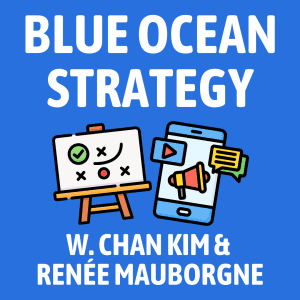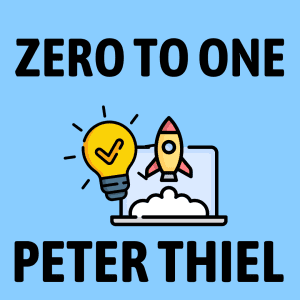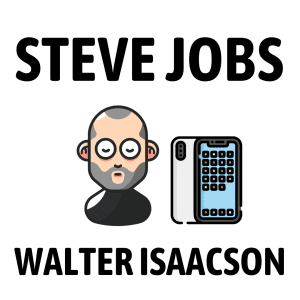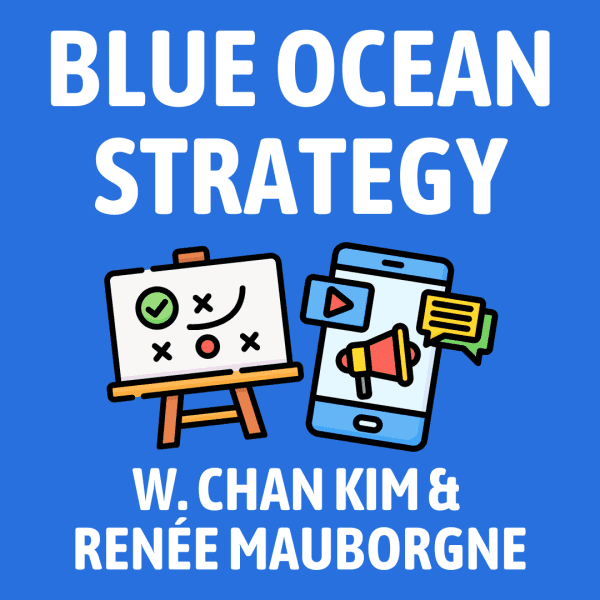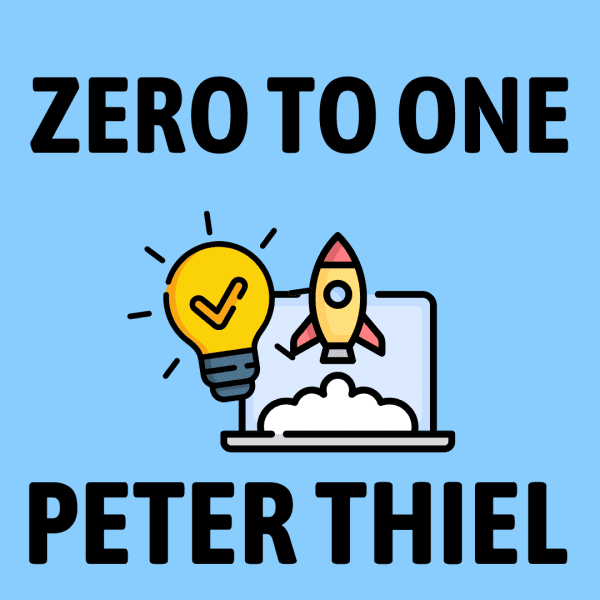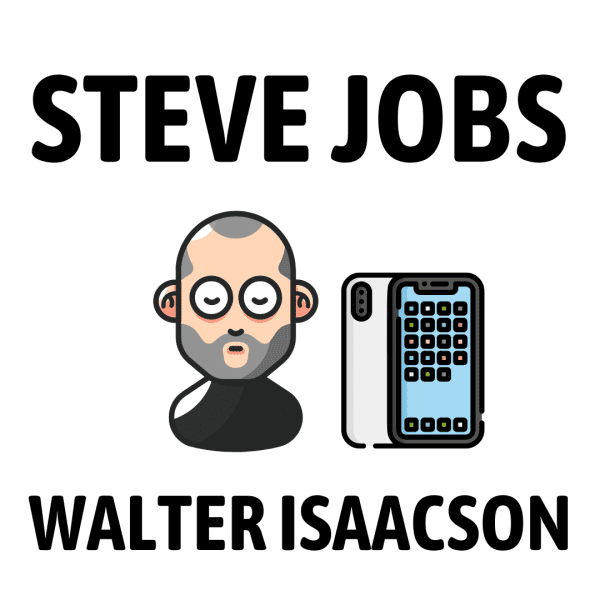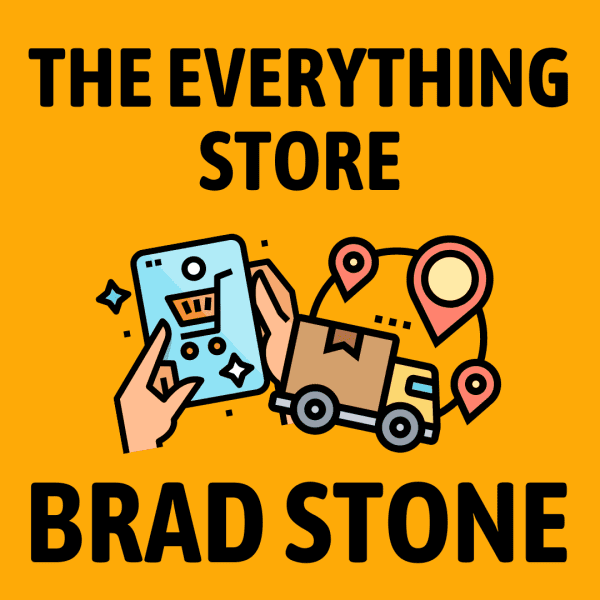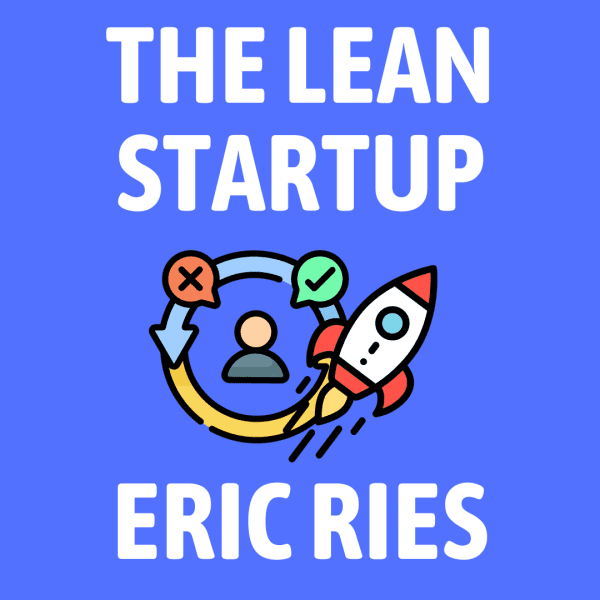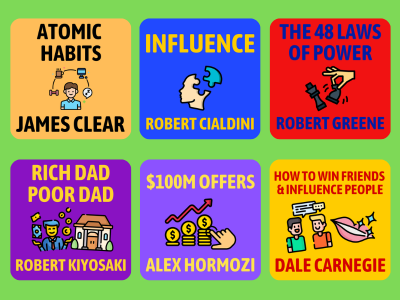"Blue Ocean Strategy" by W. Chan Kim and Renée Mauborgne introduces a groundbreaking approach to strategic business planning, focusing on creating uncontested market spaces (Blue Oceans) rather than competing in overcrowded markets (Red Oceans).
Why read it?
Imagine that instead of focusing on beating your competitors, you could create a whole new market space where you had none?
It's an idea that is both liberating and compelling.
Through numerous case studies, these authors show how it has been done in the past and how we may be able to create our own Blue Ocean.
This book is a must read for anyone who wants to be an innovator and redefine their market so they can win.
Zero to One is about the future of technology and a guide for startup business founders.
Peter Thiel is a billionaire entrepreneur and investor that shares many unconventional ideas.
He says entrepreneurs should avoid competition.
Instead build a (legal) monopoly selling something completely new and incomparable.
Why read it?
If you're trying to come up with an innovative new business idea, or if you're struggling to stay afloat in an overcrowded market, Peter Thiel's "Zero to One" may be your life jacket.
Peter Thiel, the entrepreneur and investor behind major names like PayPal, Facebook and Palantir — challenges us to think about creating something so unique it goes from zero (nonexistent) to one (the first of its kind).
This isn't about following trends; it's about setting them.
This book urges you to look where others don't and think differently. 🏆
Steve Jobs is the official biography of the co-founder of Apple and Pixar.
He had an intense passion to create revolutionary products like the iPhone, iPad, iPod, iTunes, and Macintosh computers.
His personality was an unusual mix of Zen hippie and brash business visionary.
Why read it?
If you've ever wondered how a man who only owned black turtlenecks became the icon of innovation, or how persuasive one needs to be to sell a phone without buttons, this is your golden ticket!
Isaacson’s book isn’t just a biography; it’s a roller coaster ride through the ups and downs of a man who could sell sand in the desert.
For anyone into business, startups, or leadership, this book is like sitting down for a chat with the obsessive entrepreneur who thought different. 🖥️🍏
The Everything Store is about how Jeff Bezos grew Amazon—from a simple online bookstore into the 5th largest company in the world.
He did it with a mix of great timing, customer obsession, and relentless competition.
"The Lean Startup" by Eric Ries is about how to build new startup businesses smarter, using lean and agile methods.
It emphasizes launching a Minimum Viable Product, gathering customer feedback with scientific tests, and pivoting based on insights.
This approach helps quickly develop valuable products that truly benefit customers.
Why read it?
If you're banging your head against the wall trying to make your startup work, "The Lean Startup" can give you a much-needed plan for success.
Eric Ries flips traditional business launch strategies upside down, arguing for a smarter, not harder, approach.
It's all about building a minimal product, getting it out there fast, "failing fast," and then tweaking it based on real feedback. (Rather than perfecting something in a vacuum and hoping it flies.) Think of it like playing a video game where you get a bunch of lives to keep trying. 🎮

